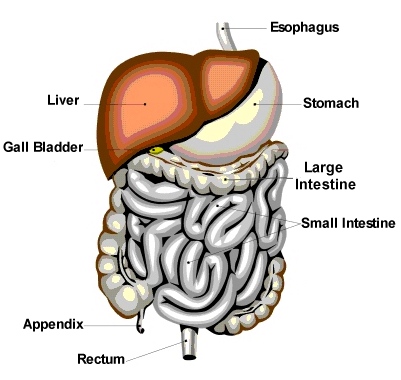|
|
|
 |
Solomon L. Lerer, M.D. Gastroenterology |
A gastroenterologist is a physician who specializes in disorders and conditions of the gastrointestinal ("GI") tract, also called the digestive tract. After completing their general medical education, gastroenterologists train for at least two years to attain Board Certification in Internal Medicine. Then, gastroenterologists study for an additional 2 - 3 years specifically for conditions of the GI tract.
General Information / Gastrointestinal Tract
 The gastrointestinal tract includes the esophagus,
stomach, liver, gall bladder, pancreas,small intestine, large
intestine, appendix, rectum, and anus. Abnormal or irregular digestive symptoms and
conditions may occur for a variety of reasons.
The gastrointestinal tract includes the esophagus,
stomach, liver, gall bladder, pancreas,small intestine, large
intestine, appendix, rectum, and anus. Abnormal or irregular digestive symptoms and
conditions may occur for a variety of reasons.
 It is important to tell the doctor about
all the symptoms you are having. For example, if you have more than one digestive symptom
- such as a feeling of fullness after eating a meal - make sure you describe each and
every symptom fully to your doctor.
It is important to tell the doctor about
all the symptoms you are having. For example, if you have more than one digestive symptom
- such as a feeling of fullness after eating a meal - make sure you describe each and
every symptom fully to your doctor.
In addition to talking about the symptoms you have listed on the Motility Quiz, prepare answers to the following questions. These will help your doctor arrive at a proper diagnosis.
Webmaster David H. Ferber & Asso. (954) 270-5651 @ Copyright 2000